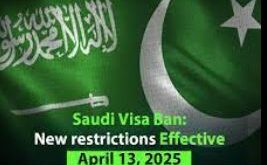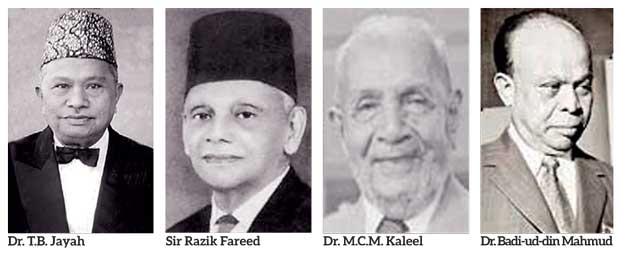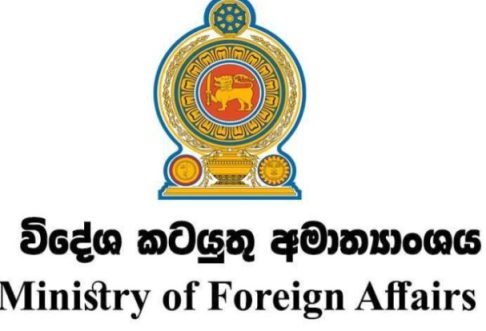 Sri Lanka, nicknamed the "Pearl of the Orient", has begun to lose its luster following the brief spell of harmony that came at the end of a decades-long civil war, a war that claimed countless victims and ravaged the countryside, threatening to split the country into many factions.
Sri Lanka, nicknamed the "Pearl of the Orient", has begun to lose its luster following the brief spell of harmony that came at the end of a decades-long civil war, a war that claimed countless victims and ravaged the countryside, threatening to split the country into many factions.
The government understood that reconciliation with its minorities including the Tamils and the Muslims was critical to ensuring that peace would prevail and that the island would begin to focus on long neglected progress and development. However, that does not seem to be the case as the messages from elements within the government appear to contradict the policy of reconciliation which does not bode well for the security of the country.
A politician such as Mr. Udaya Gammanpila, a member of the Jathika Hela Urumaya (JHU) party of the government, is currently sowing the seeds of discord among the populace with wild claims and charges of minority uprisings. As a member of JHU, a Sinhalese party known for its extremism and dislike of minorities, and who openly advocate that Sri Lankan Tamils should vacate the land and go back to Tamil Nadu in India, and that Muslims should move out and go to Saudi Arabia, this politician is setting into motion a dangerous precedent, one that will eventually backfire and drown the entire island in ethnic carnage.
As Latheef Farook, a respected author and writer who has traveled far and wide, says: “Today the animosity against the Muslim community has been carefully planned and built up with no valid reason, by a small group namely Bodu Bala Sena described as Buddhist Zionists by Dr. Suren Raghavan, a senior research fellow at the Center for Buddhist Studies of University of Oxford and who teaches politics at University of Kent-Canterbury.”
Mr. Farook cautions that as Mr. Gammanpila is "a responsible member of the government, one would expect him to take urgent measures to prevent such a calamity. But there has been no such sign for reasons better known to him. Judging from the freedom with which the mobs, often led by monks, attack mosques and other places under the watchful eyes of police, it appears that they have the blessings of the authorities. So far no one has been taken into custody."
And Farook’s claims have been verified by independent sources. During the past year and a half or so, there have been deliberate provocations when militant Buddhists attacked Muslim shrines, mosques and shops. Websites spreading a hate campaign against Muslims have sprung up, sponsored by some of the monks who are supposed to preach Buddha’s message of peace and harmony. This was not something totally unexpected as the hardline racists claimed in the past that they would deal with the Muslims after settling their scores with the Tamils.
Under such circumstances, continued and unnecessary attacks on Muslims will spell disaster. The racist attack of a handful of people on Tamils in July 1983 created a powerful Diaspora. It spawned a dreadful civil war and gave rise to terrorism, drawing India into local politics and dividing the communities on the island.
Farook asks: “Who knows what the consequences would be in the event of an attack on Muslims? Is there any need to provoke the island’s Muslims who remain the most peaceful of all three major communities and want to live in harmony with both the Sinhalese and the Tamils as pointed out by former Chief Justice Sarath N. Silva?”
“What the chauvinists fail to understand is that Muslims by and large are ignored by the government and betrayed by their politicians, and remain a sidelined community. For example, hardly any Muslim is recruited to the armed forces and police, and one can rarely spot a Muslim employee in government departments and other state institutions. Even the mercantile sector seems to have closed its doors to Muslims who are excluded from Government contracts, tenders and all such activities. Indifference toward Muslims remains open and around 130,000 Muslim refugees from the north continue to languish in refugee camps in appalling conditions three and a half years after the war. The irony is that this is happening three years after the 30-year ethnic war ended. What lessons have we learnt from the past carnage? Absolutely nothing!”
One of the few voices of reason in the government, the Minister of National Languages and Social Integration Vasudeva Nanayakkara cautioned that a war against the Muslim minority is raising its ugly head on the island.
Referring to unprovoked aggression by Buddhist militants, he charged that, “a very dangerous trend has been started by several groups of people. The Muslim minority on the island has been attacked. This is an unjustifiable and un-Buddhist course of action to take.”
Sri Lanka is currently on a road fraught with dangers. Victory in the civil war against the Tamils should not grant Buddhist militants an open license to indulge in ethnic cleansing. Nor should politicians play the race card to win votes. They may win in the short run, but the far-reaching consequences could spell disaster for the "Pearl of the Orient".
— The author can be reached at [email protected]. Follow him on Twitter @talmaeena

Post Disclaimer | Support Us
Support Us
The sailanmuslim.com web site entirely supported by individual donors and well wishers. If you regularly visit this site and wish to show your appreciation, or if you wish to see further development of sailanmuslim.com, please donate us
IMPORTANT : All content hosted on sailanmuslim.com is solely for non-commercial purposes and with the permission of original copyright holders. Any other use of the hosted content, such as for financial gain, requires express approval from the copyright owners.
 Sri lanka Muslims Web Portal Sri Lanka Muslims News Center
Sri lanka Muslims Web Portal Sri Lanka Muslims News Center
 Print
Print Post Comment
Post Comment 


 Donate
Donate


